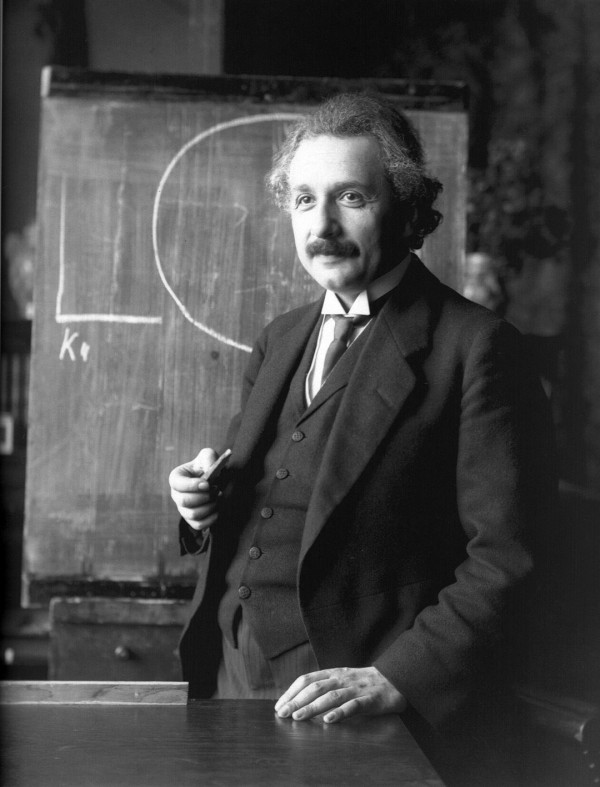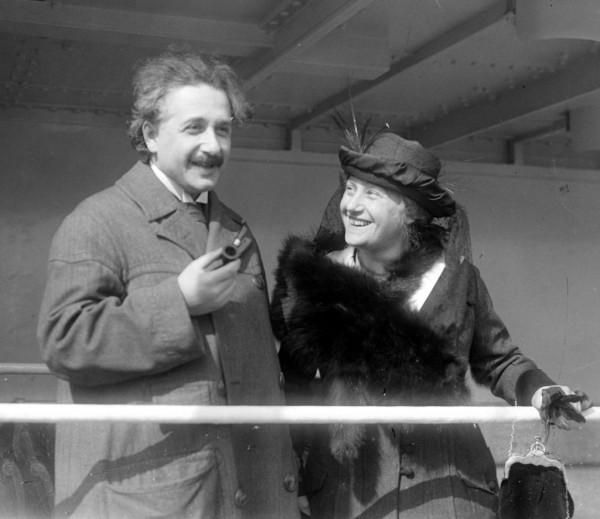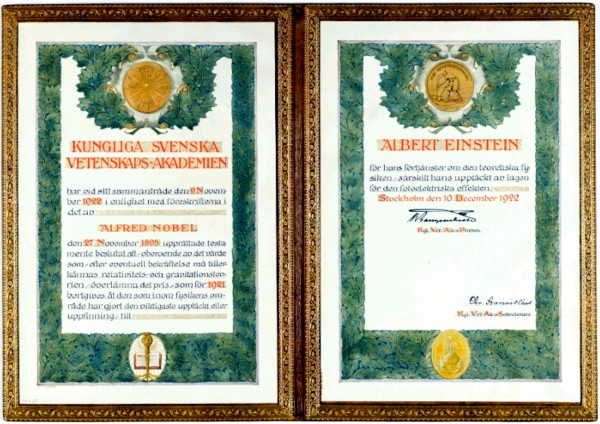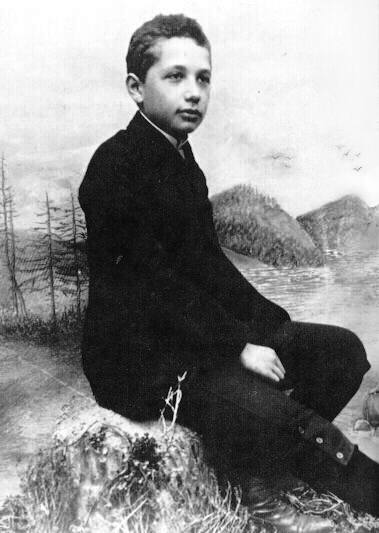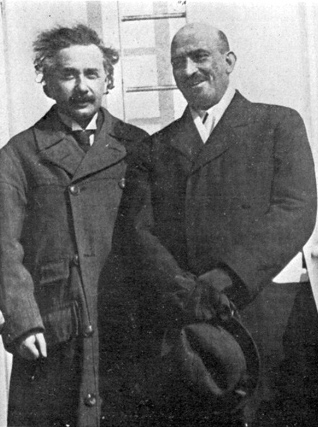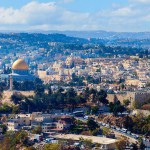While best known for his contributions in the realm of science, few know how Albert Einstein helped the Jewish People attain a homeland in the land of Israel.
Even fewer realize that Einstein taught his often provocative ideas of how the physical world operates using similar teaching techniques as Yeshua (Jesus) used.
Sixty-two years after his death, we can still learn much from Einstein, not only as a genius in science but also as a courageous advocate for the Jewish People and a creative teacher.
Born in 1879 in the German Empire to Jewish parents, Einstein generally lived his adult life as a secular Jew. Yet, he was not an atheist. He wrote that he had “a humble admiration of an infinitely superior Spirit that reveals itself in the little that we, with our weak and transitory understanding, can comprehend.” (Albert Einstein, The Human Side: Glimpses from His Archives, p. 66)
Knowing that we have limits to our understanding, Einstein explained his bold but true ideas of how the physical world operates as Yeshua explained how the Kingdom of God operates — using parables, analogies that people could grasp and readily apply.
In Einstein’s book, Relativity: The Special and the General Theory, Einstein “addresses the reader without assuming any prior knowledge of the subject,” said head of the Einstein Center at Jerusalem’s Hebrew University Prof. Hanoch Gutfreund.
“He uses familiar metaphors like railway cars and platforms. He often invites the reader to participate in the thought process by raising a question — which he himself answers … like a one-sided platonic dialogue, drawing in the reader as an active participant.”
“The greatest physicists of his day were unable to do what this young man of [36], who had never worked in a university, was able to do in his spare time from a job in a patent office — with a baby sitting on his knee,” Gutfreund said. (Haaretz)
Einstein gained widespread popularity as a scientist and used that influence to promote more provocative ideas, this time in the realm of Zionism and social justice for all.
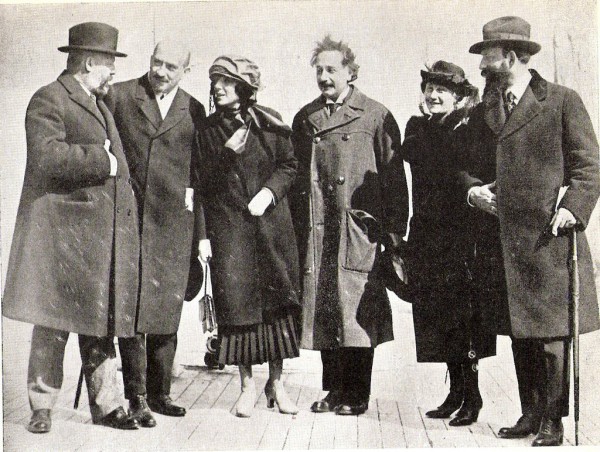
Albert Einstein with his wife Elsa and other Zionist leaders, on arrival in New York, 1921. Einstein became an American citizen in 1940.
In 1921, six years after publishing his relativity theory, Einstein accepted an invitation from a brilliant chemist and head of the World Zionist Organization, Chaim Weizmann, to tour the United States.
On that tour, Einstein raised funds for two of his personal passions: helping the Jews settle in a national homeland and the establishment of a university in Jerusalem — to be called Hebrew University.
Four years later, Hebrew University opened on Mount Scopus, and Einstein served on its first board of governors, along with Chaim Weizmann and Sigmund Freud, among others.

The main campus of Hebrew University sits atop Mount Scopus (the northern ridge of the Mount of Olives). Hebrew University has 6 campuses,14 schools, 23,000 students, more than 7,000 patents registered, and 8 Nobel Prize winners among its faculty since its opening in 1925.
In December of 1932, Einstein and his wife left Germany and planted his academic roots in the USA at the Institute for Advanced Study in Princeton, New Jersey.
Back in Germany, however, Einstein became a propaganda tool for the Nazi regime, who called him “ungrateful” and “not yet hanged,” hinting that he would be hanged if he set foot in Germany again.
As well, Deutsche Physik, the German Physics community, banished his work, labeling it “Jewish Physics” and promoted Einstein book-burning ceremonies.
Though famous for his passionate pacifism as well as his genius, the rise of Hitler’s Nazi regime in 1933 helped Einstein understand that fighting for one’s mere existence is not possible through inaction.
True to that principle, throughout the 1930s Einstein lobbied for the civil rights of African Americans in the US as well as for increasing the number of emigrant scientists, artists, and others endangered by the Nazi regime throughout Europe.
And he continued to support efforts for a Jewish homeland.
At the request of his cousin, Einstein supported a fundraiser for the Hagana, the core of the Israel Defense Forces (IDF) by writing a letter, which would be auctioned off at the event.
In his letter (postmarked May 4, 1948, ten days before Israel’s official rebirth), he clearly stated his position on the Zionist efforts:
”No one respects or bothers about those who do not fight for their rights.” (Einstein: The Life and Times by Ronald Clark, p. 734)
The letter raised $5,000 for the IDF.
When United States President Harry Truman recognized Israel as a sovereign nation in May 1948, Einstein called it “the fulfillment of our dreams.”
That year, Einstein visited the main campus of Hebrew University on Mount Scopus in Jerusalem and was invited to speak from “the lectern that has waited for you for two thousand years.” (Aish)
In 1949, a year after six neighboring nations invaded Israel, trying to overturn her national sovereignty, Einstein again gave a lecture at Hebrew University, clearly stating the realities of fighting for national existence:
“In the last period of the fulfillment of our [Zionist] dreams, there was but one thing that weighed heavily upon me: the fact that we were compelled by the adversities of our situation to assert our rights through force of arms; it was the only way to avert total annihilation.”
In 1952, after the death of Weizmann, who became Israel’s first president, Israeli Prime Minister David Ben-Gurion asked Einstein to be the next president of the State of Israel; he declined, citing lack of experience and skills for the role.
“I am deeply moved by the offer from our State of Israel, and at once saddened and ashamed that I cannot accept it. All my life I have dealt with objective matters, hence I lack both the natural aptitude and the experience to deal properly with people and to exercise official functions,” Einstein wrote in response.
“For these reasons alone I should be unsuited to fulfill the duties of that high office, even if advancing age was not making increasing inroads on my strength,” Einstein wrote.
“I am the more distressed over these circumstances because my relationship to the Jewish People has become my strongest human bond, ever since I became fully aware of our precarious situation among the nations of the world.” (Jewish Virtual Library)
But Einstein also hoped for lasting peace with the Arab people “based on fruitful cooperation and mutual respect and trust. For this is the only means through which both peoples can attain true independence from the outside world.” (Essay #41: “To the University of Jerusalem” in Essays in Humanism by Albert Einstein)
That fruitful cooperation and mutual respect that Einstein hoped for in the land of Israel has not materialized. On the contrary, the Palestinian Authority supports and pays out millions of dollars to Palestinian terrorist prisoners, ex-prisoners, and families of the so-called Muslim martyrs who murder and maim Israeli Jews.
You can stand with us in these last days as we bring the Good News of Yeshua HaMashiach (Jesus the Messiah) to the Jewish People and to Arabs here in Israel and around the world through the development of the Messianic Prophecy Bible.




